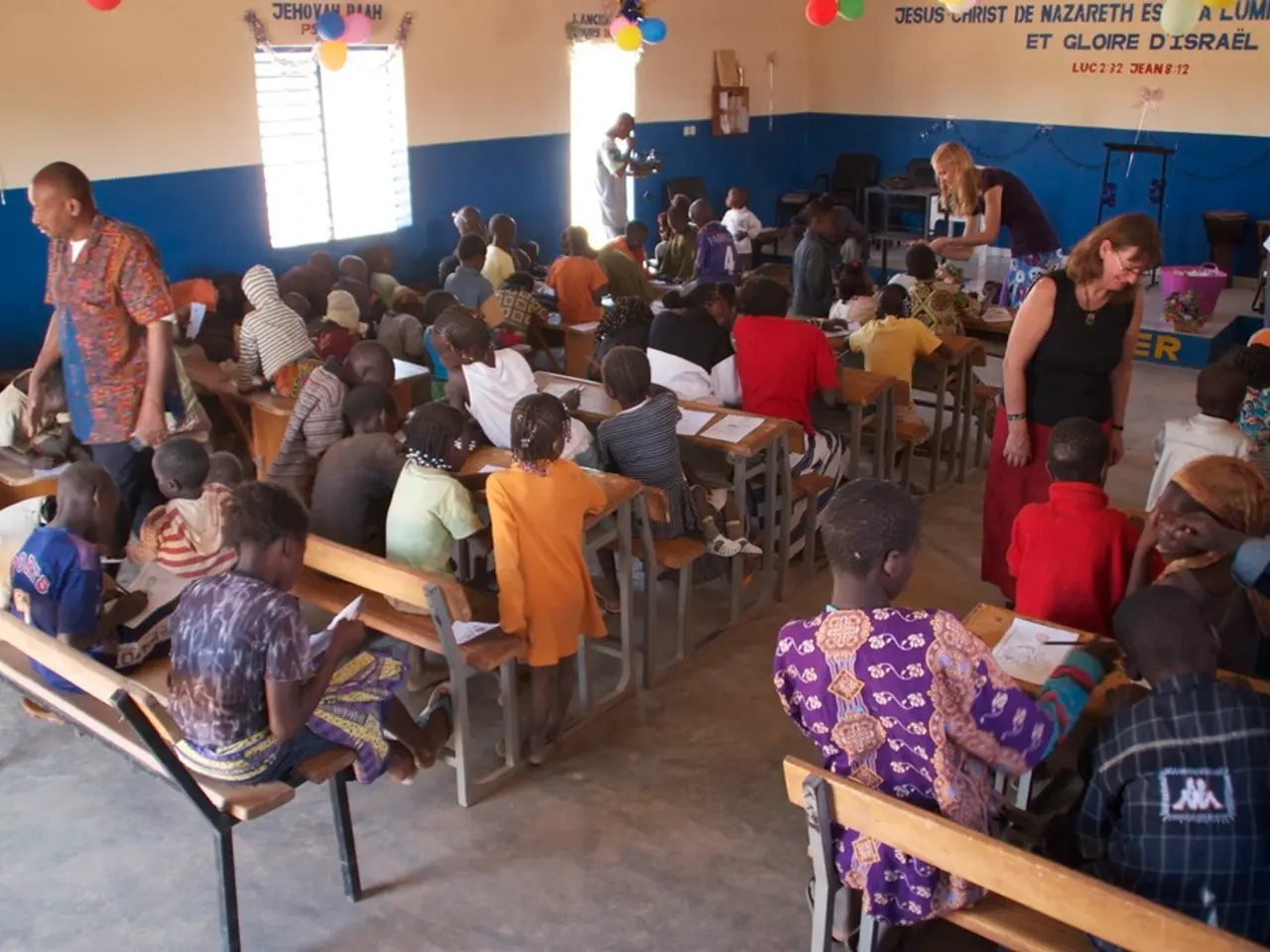Revised school standards for kindergarten instructors within BW region
The Ministry of Culture in Baden-Württemberg has presented a new orientation plan for kindergartens, replacing the previous plan from 2005 and last revised in 2011. The new guidelines, aiming to create a safe and developmentally supportive environment for children, are built upon the Orientation Plan of Baden-Württemberg, quality handbooks, and a specific violence protection concept.
The new guidelines emphasize structured pedagogical work, prevention of violence, and specialized training for staff to implement child protection measures effectively. They include comprehensive frameworks to structure indoor and outdoor environments, though Baden-Württemberg shows limited formal state-level recommendations specifically for physical activity promotion compared to some other German states.
Many childcare centers in Baden-Württemberg often follow the Orientation Plan, which integrates child rights, well-being, and pedagogical support that align with these protective measures. Practical implementation also involves collaboration with parents and education professionals to ensure customized support for children, including those with special medical needs such as Type 1 diabetes, through training workshops and legal agreements regarding medical assistance administration.
Some daycare centers, such as Esslingen Plochinger Straße, reflect these guidelines by offering flexible, child-centric programs supporting physical activity, music, and social-emotional development, consistent with Baden-Württemberg’s guidance.
However, the new guidelines have faced criticism. There is some critique regarding the limited structural recommendations at the state level for promoting physical activity when compared with stronger guidelines in states like Berlin or Saxony-Anhalt. Concerns exist about the variable enforcement and practical uptake of violence protection concepts across different kindergartens due to resource disparities and staff training levels. Integration of comprehensive health-related training (such as diabetes management) is still growing, with some reliance on voluntary staff participation rather than mandated systematic training.
The state and federal governments invest approximately 3 billion euros in early childhood education in Baden-Württemberg each year. The new orientation plan is a 300-page document that serves as a guide for pedagogical work in kindergartens. Approximately 10,000 kindergarten facilities are expected to implement the guidelines from the new orientation plan.
Hanna Binder, deputy regional leader of ver.di, has described the presentation of the plan as a "celebration of a whitewash". The union ver.di Baden-Württemberg expresses skepticism about the realistic implementation of the new orientation plan. The union criticizes the expectation for chronically overburdened pedagogical specialists to cover additional fields of early childhood education.
New thematic areas such as media education are included in the orientation plan. The new orientation plan focuses on four guiding principles: child protection and children's rights, inclusion, participation, and education for sustainable development. Binder finds it problematic that the proportion of unqualified staff in kindergartens continues to rise. Group sizes in kindergartens are higher than what is professionally recommended, according to the union.
Around 415,000 children under the age of 6 are in care in Baden-Württemberg, according to the state's statistical office. The new guidelines, while aiming to improve the quality of care and education for young children, face challenges in their implementation and require ongoing support and resources to ensure their effective implementation across all kindergartens in the region.
The new orientation plan in Baden-Württemberg, focusing on child protection and children's rights, includes a significant emphasis on learning and education-and-self-development, aiming to foster structured pedagogical work and social-emotional development in kindergartens. Despite the allocation of 3 billion euros annually for early childhood education, the union ver.di Baden-Württemberg raises concerns about the realistic implementation of the plan, particularly regarding the rising proportion of unqualified staff and larger group sizes in kindergartens.




